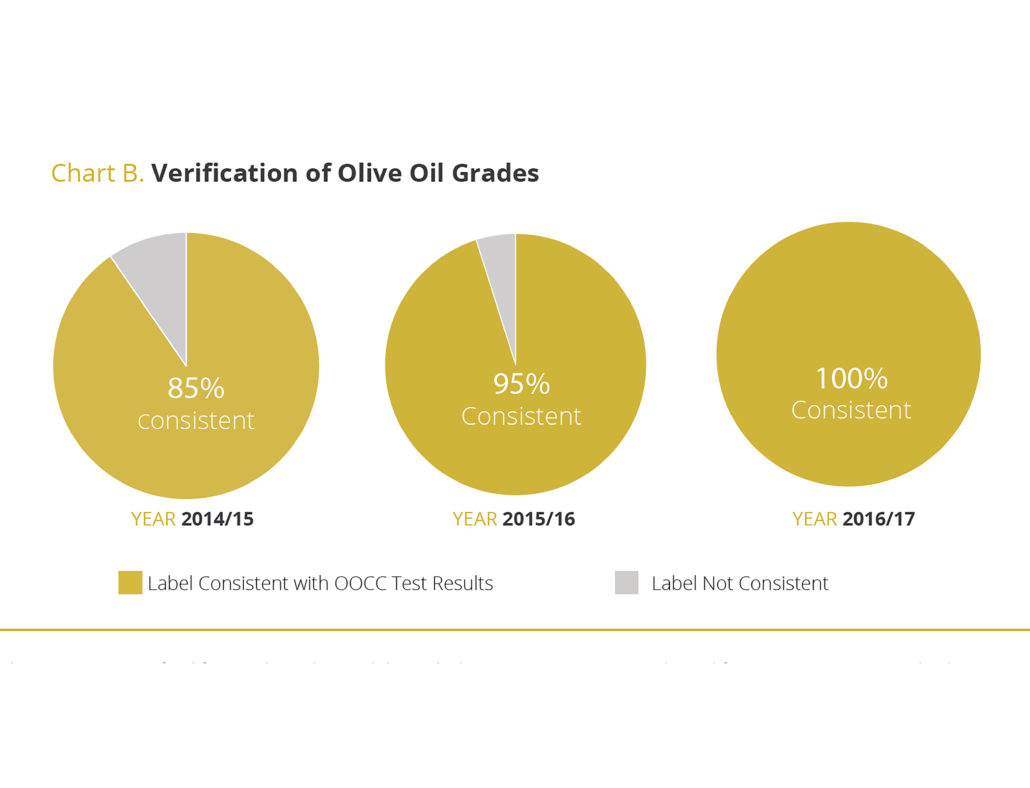
New Report Shows Improvements in California Olive Oil Quality
This week the Olive Oil Commission of California issued a new report indicating the mandatory government sampling program which began in 2014 is resulting in improvements to the quality of California olive oil and more accurate labeling by California olive producers.
According to analysis conducted by the UC Davis Olive Center to examine California, olive oil test results conclude that in the three years since the OOCC was formed:
- The vast majority of olive oil produced in California is verified as Extra Virgin.
- Most California olive oils are accurately labeled by producers.
- Independent laboratory analyses show that California olive oils produced by OOCC members are easily meeting mandatory quality standards established by the California Department of Food and Agriculture.
The overall goal of the Olive Oil Commission of California is to ensure that olive oil produced in California is trusted and valued. And, although the OOCC is just three years old, this report indicates the program is working to make a difference in the quality of olive oil produced in the state.
One of the most important objectives of the OOCC program is to verify that handlers are correctly labeling their olive oil according to grade. Recent media reports on olive oil fraud have resulted in confusion among consumers regarding how to select and buy good quality olive oil. The OOCC represents the growing California olive oil industry’s commitment to improving the consumer olive oil buying experience.
Under the OOCC program, California Department of Food and Agriculture officials collect samples of olive oil from OOCC member producers. These samples are sent to independent accredited laboratories for chemical and sensory analysis. OOCC members are also required to collect samples of their olive lots and send them to accredited labs of their choosing.
The UC Davis Olive Center compares test results from the OOCC independent lab with those collected and tested by handlers. According to the new report, OOCC members have made continuous improvements in testing and grading their olive oils so it is consistent with the OOCC’s independent lab test results. In 2016/17, the UC Davis Olive Center analyses found that 100 percent of the olive oil samples collected for the OOCC by government officials were accurately labeled and consistent with handlers’ own test results.
A copy of the full report titled “California Olive Oil Quality 2014 to 2017” is available here.
We are very pleased with this new report’s findings. The hope of the OOCC is that we can establish trust and credibility among consumers, retailers and restaurants. Ultimately, this trust will make it easier for olive oil lovers to purchase good quality olive oils by selecting those produced in California.